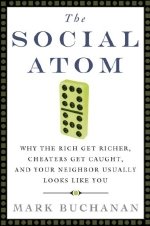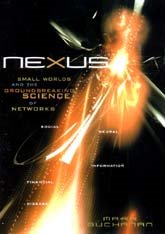News of the past few days and weeks suggests a rather dismal view of humanity. Israelis and Palestinians are again firing rockets at each other. On the streets of Karachi, just over a week ago, Pakistani security forces stood by while 42 people were killed and many more injured at a rally for Iftikhar Mohammad Chaudhry, deposed Chief Justice of the Supreme Court and opponent of President Pervez Musharraf. In the United States, a company compiling data on consumers is making money by helping criminals steal the savings of thousands of retired Americans.
Violence, corruption and greed. What kind of people are we?
But counter all of that with this – a young man in Cleveland has pledged $1 million of his own money to establish scholarships for disadvantaged children. His name is Braylon Edwards, and, O.K., he’s an emerging star for the Cleveland Browns who makes more money in a year than most of us will in a lifetime, but still. He could have bought a yacht and a fleet of sparkling Humvees. Instead, he invested in the future of hundreds of people he doesn’t even know.
“To secure a positive future for our country,” an ESPN article quoted Edwards as saying, “we have to start with these kids. We have to support them.”
So maybe the news is more dismal than it needs to be. But a glance at my previous columns shows that I’ve fallen into a similar pattern, writing on racial prejudice, genocide and entrenched political polarization, while not mentioning the more positive sides of the social atom. Cynicism can be pushed too far, because pure and untainted human altruism really exists – and it’s something to which we should learn to pay a lot more attention.
In a classic experiment of modern behavioral science – one that is now familiar to many people – an experimenter gives one of two people some cash, say $50, and asks them to offer some of it (any amount they choose) to another person, who can either accept or reject the offer. If the second person accepts, the cash is shared out accordingly; if he or she rejects it, no one gets to keep anything.
If we were all self-interested and greedy, then the second person would always accept the offer, as getting something is clearly better than getting nothing. And the first person, knowing this, would offer as little as possible. But that’s most certainly not what happens.
Experiments across many cultures show that people playing this “ultimatum game” typically offer anything from 25 to 50 percent of the money, and reject offers less than around 25 percent, often saying they wanted to punish the person for making an unfair offer.
An important point that people often overlook about these experiments (and others like them) is that they’ve been performed very carefully, with participants remaining completely anonymous, and playing only once. Everything is set up so no one can have any hope of building a good reputation or of getting any kind of payback in the future in kind for their actions today.
So this really does seem to be pure altruism, and we do care about fairness, at least most of us.
That’s not to say, of course, that we’re not often self-interested, or that human kindness isn’t frequently strategic and aimed at currying favor in the future. The point is that it’s not always like that. People give to charity, tip waiters in countries they’ll never again visit, dive into rivers to save other people or even animals – or set aside $1 million to send poor kids to school – not because they hope to get something but, sometimes, out of the goodness of their hearts.
Social researchers have begun referring to this human tendency with the technical term “strong reciprocity,” which refers to a willingness to cooperate, and also to punish those who don’t cooperate, even when no gain is possible. And there’s an interesting theory as to why we’re like this.
In theoretical studies, economists and anthropologists have been exploring how self-interest and cooperation might have played out in our ancestral groups of hunter-gatherers. In interactions among individuals, it’s natural to suppose that purely self-interested people would tend to come out ahead, as they’d never get caught out helping others without getting help in return and would also be able to cheat any naïve altruists that come along.
But it is also natural to suppose that when neighboring groups compete with one another, the group with more altruists would have an advantage, as it would be better able to manage collective tasks – things like farming and hunting, providing for defense or caring for the sick – than a group of more selfish people.
So you can imagine a basic tension in the ancient world between individual interactions that favor self-interest and personal preservation, and group interactions that favor individual altruism. Detailed simulations suggest that if the group competition is strong enough, cooperators will persist because of their intense value to group cohesion.
But there’s slightly more to the story, too. Further work shows that groups really thrive if the altruists are of a special sort – not just people who are willing to cooperate with others, but who are also willing to punish those who they see failing to cooperate.
This work is only suggestive, but it raises the interesting idea that it’s a long history of often brutal competition among groups that has turned most of us into willing cooperators, or, more accurately, strong reciprocators. We’re not Homo economicus, as Herbert Gintis of the University of Amherst puts it, but Homo reciprocans – an organism biologically prone to cooperative actions, and for good historical reasons.
No doubt this is what many people probably thought all along, without the aid of any theory or computer simulations. It just goes to show how theorists can labor for years to re-discover the obvious. Then again, re-discovery often casts the familiar in a not-so-familiar light, and leads us to reconsider what we thought we already knew.
We’ve been so busy over the past half century glorifying the power of markets driven by self-interest that we’ve overlooked how many of our most important institutions depended not on self-interest but on something more akin to a cooperative public spirit. If an impulse toward cooperation rather than self-interest alone is the “natural” human condition, then we’ve been poor stewards of a powerful social resource for the collective good. The United States health care system, to take one example, has by design been set up around the profit motive, based on the belief that only this narrow motivator of individual action can be counted on to produce anything good. It’s perhaps no surprise that it is among the most expensive in the world, and far from the most effective.
In a press conference at the Cannes Film Festival, following a screening of his new film “Sicko,” Michael Moore criticized how financial interests play such a foundational role in health care in the United States. “It’s wrong and it’s immoral,” he said. “We have to take the profit motive out of health care. It’s as simple as that.”
But it’s not quite that simple. It’s not that profits shouldn’t play any role, because we are indeed motivated in part by self-interest. It’s just that we have other motivations, too, and helping others is one of those. We need to be just as open to the better parts of human nature as we are protective against the narrowly materialistic ones, whether we’re considering health care or anything else, including education.
You don’t need a new breed of experimental economists to tell you that. Just ask Braylon Edwards.
Tuesday, May 29, 2007
The golden rule in the human jungle
Subscribe to:
Post Comments (Atom)




1 comment:
Thanks lots for show somewhat helpful informations. Your site is great.I'm impressed by the data that you have on this blog. It reveals how very effectively you realize this subject. Bookmarked this process net web page, will arrive back once more for lots more. You, my buddy, amazing! I found just the information I previously appeared for everywhere and simply could not come across. What a supreme internet site. Just like this internet web site your website is one among my new favorite.I such as this info shown and it has given me some sort of motivation to have accomplishment for some trigger, so keep up the helpful work!
Post a Comment